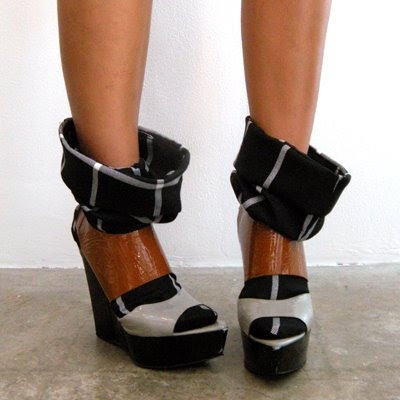
The
Stylee Friday column on the
Fader blog recently did a very interesting profile on
Coreen Simpson, designer and champion of the very first Black Cameo broaches, which became immensely popular in the 1980s.

While working as a freelance fashion photographer, Simpson began taking design courses at Parsons School of Design, soon releasing a small collection of jewelry and other knicks-knacks which she sold at street fairs across the city. Gaining a small following, her creativity really kicked off when a client brought up Chanel's new line of cameo broaches. Lamenting that the classic Italian broaches never featured black women, Simpson decided to change that. When her line of intricately designed broaches debuted at the Studio Museum of Harlem in the winter of 1990, they sold out almost immediately and became the new trend du jour with fashionable Black women throughout the city.

When asked what the importance of style meant to her, Coreen had a very insightful response that touched on the idea that fashion is more than just frivolous materialism:
"Clothes and jewelry have always been very important to me in observance of how people present themselves because that’s empowerment. Everything I do is about self-presentation and empowerment. You know why it’s so important? Because even people who have very little can control how they present themselves to the world. If you have no money, no nothing, you can throw on a scarf, put your hat to the side and walk out in to the street and feel good. It’s style."
The idea of overcoming economic disenfranchisement with an artistic, visual method of self-presentation really takes us back to the idea that fashion is mode of artistic expression. I admire the interviewer for getting this out of Coreen because it connects fashion to a force higher than materialism, which is what it represents more so these days.
Besides being a fashion designer, Simpson is more recognized for her work as a freelance fashion and nightlife photographer. Chronicling Harlem's fierce underground fashion communities and nightclubs in the late 70s and 80s, she was able to capture a plethora of styles and characters--both famous and just plain amazing--which will be released this May in her book
The Black Cameo. Check out some of the shots from her book below, and read the rest of the interview on the Fader blog.































































